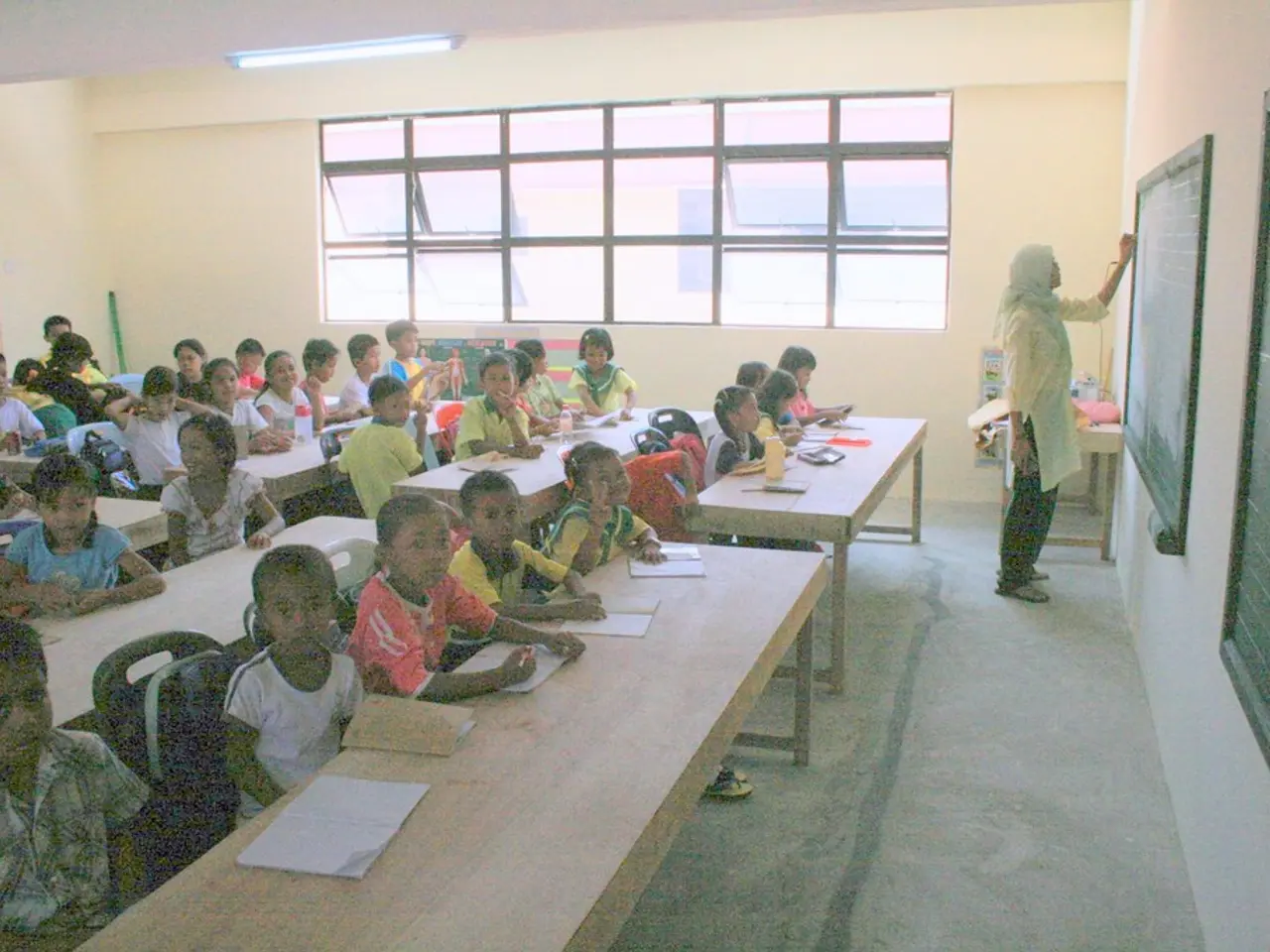Ballot by Hand in Referendum
In the heart of Germany, Berlin's schools are grappling with the challenges of digital education. A recent analysis reveals that the integration of digital aids in teaching varies significantly across schools, with some lacking interactive whiteboards and inconsistent internet access.
The current IT concept of schools decides the equipment with interactive boards, but the development of media literacy is neither systematic nor binding in the preparatory service seminars. Many students express a desire for workshops on handling interactive whiteboards during their studies.
Digital media equipment in Berlin schools is divided into two areas: possibilities in subject teaching and organizational aids in school life. Examples of subject teaching digital offers include the smartboard, digital teaching assistants, learning and application programs on the internet, and the use of electronic devices in teaching. Organizational aids, such as wikis, are also employed to streamline school operations.
Examples of digitalization in teaching include the use of audiovisual media, interactive whiteboards, and internet integration. Digital teaching assistants, software programs, and subject-specific applications can benefit teaching by offering numerous possibilities and simplifications.
However, the comprehensive offers of the Senate Administration for training in PowerPoint, interactive whiteboards, Excel, learning platform, and the internet are barely used. The use of digital aids in schools is not adequately enabling the use of digital teaching offers.
Maximilian Weis, in his 2017 article, highlighted the limited extent of timely training for teachers regarding digitalization in the classroom. He argued that media literacy should play a crucial role in the training and further education of future teachers. A significant leap in media literacy for teacher trainees usually occurs quite quickly through self-study, provided they work at a digitally well-equipped school.
In contrast, other German federal states have made strides in digital teacher training. Networks like the digiLL alliance, involving universities such as Aachen, Bochum, Bonn, Dortmund, Duisburg-Essen, and others, provide over 70 freely accessible digital learning modules to promote media-pedagogical competence in teacher education. Additionally, the Landesinstitut für Schule in Bremen integrates digital and data-supported teaching in its mandatory training curriculum for teacher trainees to ensure competence in digital instructional methods.
Today's students are constantly confronted with a digital world, demanding a significant step forward in digital education. Teaching should be designed to be lifelike, appealing, and up-to-date in digital terms. The author argues that the handling of digital media has a substantial impact on teaching in individual subjects and on general school life.
In conclusion, while Berlin schools are making efforts to integrate digital aids, there is a clear need for improvement in digital education. The author's call for media literacy to play a more significant role in teacher training resonates as a crucial step towards bridging the digital education gap in Berlin.
Read also:
- Peptide YY (PYY): Exploring its Role in Appetite Suppression, Intestinal Health, and Cognitive Links
- Toddler Health: Rotavirus Signs, Origins, and Potential Complications
- Digestive issues and heart discomfort: Root causes and associated health conditions
- House Infernos: Deadly Hazards Surpassing the Flames








